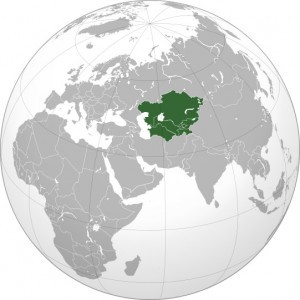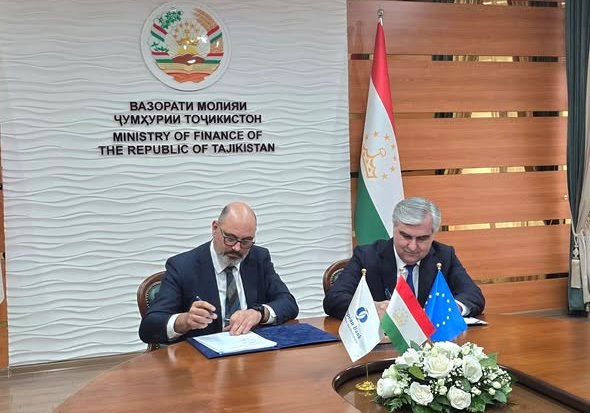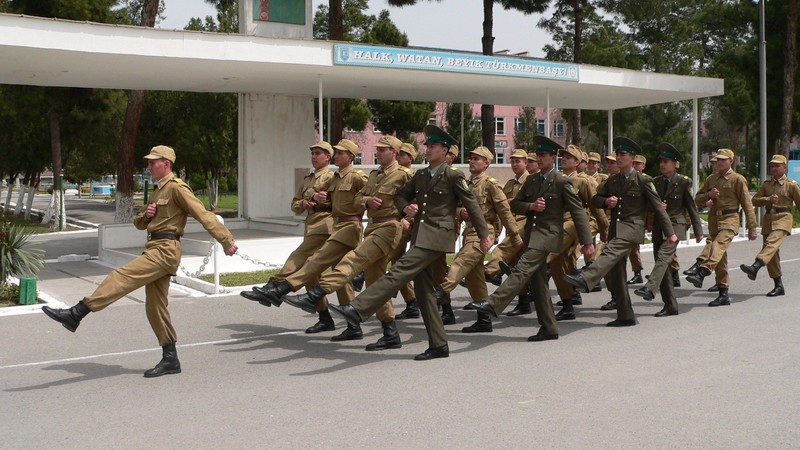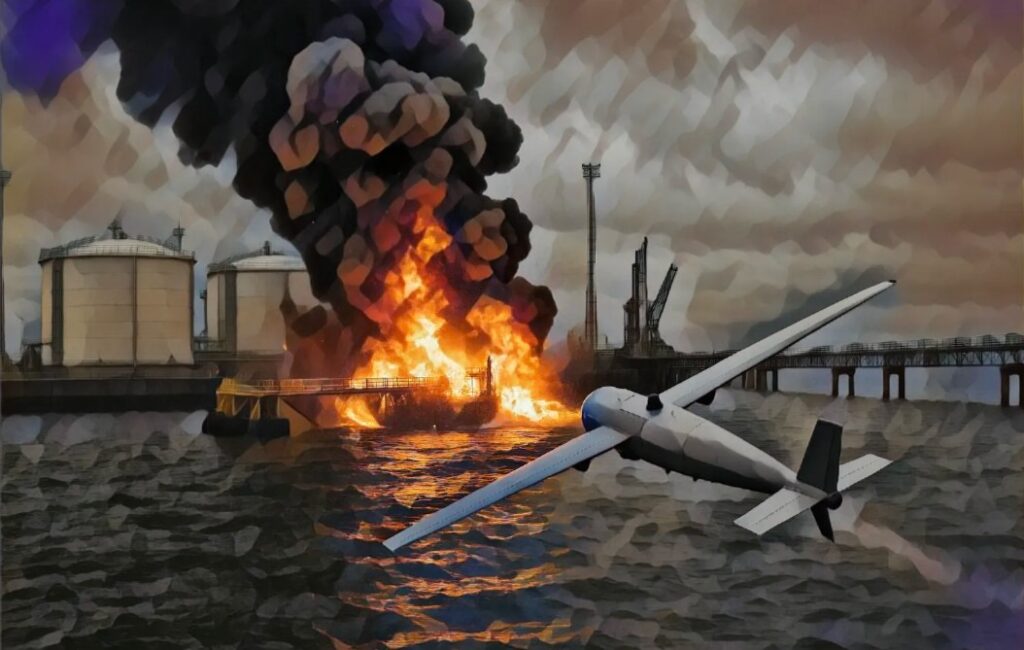BISHKEK (TCA) — The Times of Central Asia presents to its readers Stratfor’s Global Intelligence, a weekly review of the most important events that happened in the world — from Europe to Middle East to Russia to Central Asia to Afghanistan to China and the Americas.
The Week That Was
The Panama Papers Bonanza
The world feasted on the Panama Paper leaks this week. Iceland’s prime minister was the first and somewhat inconsequential casualty of the leaks but a number of other world leaders, from Argentina President Mauricio Macri to British Prime Minister David Cameron, are now on edge.
The implications of the leaks, however, will be mixed. While this is a massive information dump, most of the revelations implicate world leaders and business elite in developing countries where corruption is too pervasive to be considered a revelation. Having an offshore account is not illegal in and of itself and it must be proven that these accounts have been used for money laundering and illicit purposes. Most of these countries lack the institutional autonomy or political freedom to spin these account details into a court case or any sort of uprising with a remote chance of removing those in power.
Nonetheless, the leaks do present a number of complications. The United States and Europe are trying to clean up and stabilize the Ukrainian government to move the Minsk process along. Relying on Ukrainian President Petro Poroshenko to do the job, however, has not worked because he is the one under investigation and now faces impeachment. Chinese President Xi Jinping has already been leading the charge on his own anti-corruption probe, but has to be careful the backlash from these particular leaks given that many of them trace back to his own brother-in-law. What we cannot explain is why much of the developed world, including most notably the United States, was largely absent from the leaks, though Moscow did not waste time in labeling the entire publication as a U.S. ploy to weaken Russia. Beyond the political personalities ensnared by the Panama Papers, the broader policy debate on income inequality and the need to tie up tax loopholes and find ways to tax the wealthy to stimulate growth will surely gain momentum.
Nagorno-Karabakh Unfreezes
Stratfor highlighted in its 2016 Annual Forecast that this would be the year that the status quo would be broken in Nagorno-Karabakh, a frozen conflict on Russia’s doorstep that we have been watching obsessively for some time. Azerbaijan has long been planning a strategy to try and retake territory it lost to Armenia in the 1988 to 1994 conflict. Knowing that too big of a move would risk inviting a strong response from Armenia’s patron, Russia, Azerbaijan initiated a “bite and hold” strategy April 1. Baku will incrementally take territory and quickly return to cease-fire status to alter the battleground reality bit by bit.
Russia was deeply involved in the truce that ended fighting, working quickly to call up leaders on both sides to Moscow to negotiate. The question that has Armenia up all night is whether Azerbaijan had an understanding with Russia from the beginning on its military moves. Russia knows it is facing growing challenges to its influence in the Caucasus from Turkey and Iran, but it is still well-positioned to deepen its foothold in this region. The suspicion is that Russia could use these periodic flare-ups to get closer to Azerbaijan and make a case for why Russian peacekeepers are needed in the disputed territory. But Russia is not the only big power with a stake in the Caucasus. As we have been anticipating, this is yet another theater where we can expect to see Turkish-Russian competition grow as Turkey now has all the more reason to boost its support for Azerbaijan and scuttle Russia’s plans.
Russia’s National Guard
Another worrying sign emerged from the Kremlin this week. After deliberating for years, Russian President Vladimir Putin announced his decision to create a national guard. He appointed Viktor Zolotov, a major Putin loyalist, to lead the new security force. It makes sense that Putin is preparing domestic defenses for growing social unrest in the country. But this reminds us a great deal of former Russian President Boris Yeltsin’s attempt to create a personal army to protect him when challenges from within the Kremlin were starting to emerge.
A Dutch Referendum
Euroskeptics had a big win in the Netherlands this week when 30 percent of Dutch voters came to the polls to reject a treaty on closer ties between the European Union and Ukraine. The result does not have a binding effect on the government’s actions, but it is a signal that a significant number of voters in one of the founding members of the Continental bloc are quite disillusioned with the European Union.
Referendums will increasingly be the tool of choice for countries to voice their discontent with the EU and extract concessions from Brussels as each state tries to rewrite the rules according to their interests. The next big vote to watch of course is the upcoming British vote on whether or not to stay in the bloc. Even if the majority in the United Kingdom vote to remain in the European Union, London has already opened the door to countries to push their nationalist demands.
Venezuela Further Unravels
In Venezuela, the National Electoral Council informed the opposition-controlled National Assembly that it did not legally have the ability to carry out a referendum to recall the president. While the opposition is likely to rhetorically challenge the council’s interpretation of the laws regarding referendums, the bigger challenge for President Nicolas Maduro lies within his own party. A faction of governors fearing they may lose their posts in upcoming gubernatorial elections have been pushing to postpone elections and have reportedly supported Maduro’s ouster as a means of deflecting public anger toward the ruling United Socialist Party of Venezuela (PSUV), thereby increasing their chances of reelection.
So far, key figures such as Defense Minister Vladimir Padrino Lopez are still publicly backing Maduro, perhaps judging that now is not the right time to make such a move. But if Padrino Lopez defects from Maduro’s side, that would increase the chances of the president’s removal either by referendum or resignation. The question now is whether this removal will happen and whether it will come sooner rather than later. Timing is key, since if Maduro leaves office before Jan. 2017, new elections would be held. After January 2017, Vice President Aristobulo Isturiz would become president, which would keep the presidency in Chavista hands until 2019 elections are held.
The Saudi King in Egypt
We are keeping a close eye on Saudi King Salman’s five-day visit to Egypt that began on Thursday. A $1.5 billion investment into housing in Egypt’s restive Sinai region is expected to be signed alongside a host of other deals, along with an agreement to finance five years worth of Egypt’s petroleum needs at an optimal 2 percent interest rate. King Salman and President Abdel Fattah al-Sisi also discussed the building of a $4 billion bridge between the Saudi Arabia and Egypt to facilitate pilgrimages to Mecca and local industry. Our own sources have indicated that two small islands in the Straits of Tiran, of strategic interest to Israel and Jordan and part of the bridge’s proposed path, will be transferred back to Saudi Arabia by Egypt as part of these discussions.
Saudi Arabia, however, has made clear that its aid will not come without strings and it appears that Egypt has gotten the message. Cairo even appears to be softening to Saudi Arabia’s attempts to mediate rapprochement between Cairo and Ankara, something that King Salman is eager to see happen prior to his arrival in Ankara immediately after his Cairo visit, on the eve of the 13th Organization of Islamic Cooperation Summit in Istanbul. We will be watching to see what kinds of concessions Riyadh can extract from Cairo when it comes to committing resources in Syria and Yemen.
Full Articles
Hezbollah’s Shot at Permanency in Syria
Like other foreign and domestic actors, Hezbollah has seized on the Syrian civil war to improve its position in the country and the surrounding region. Stratfor has collected information from diplomatic sources and from sources close to Hezbollah to monitor and track the establishment of Hezbollah bases in Syria. According to those reports, Hezbollah’s attempts to expand and solidify its control in Syria will only increase in the future. Now, satellite imagery adds to these predictions by enabling us to take a closer look at a Hezbollah base near the Syrian town of Qusair, where Hezbollah has built up significant defensive positions since conquering the area in June 2013.
Those Who Are (and Are Not) Sheltered From the Panama Papers
On April 3, the Panama Papers hit media outlets around the world, and the fallout was swift. A prime minister has lost his job, and other global leaders are under mounting pressure to account for their actions. And this is only the beginning. The Panama Papers are the largest information dump of their kind, and the information that has been released so far appears to be just the tip of the iceberg. They are also the latest in a string of public leaks that seem to be happening more and more frequently. As revelations continue to emerge, calls for greater global transparency will only get louder.
Why Energy Will Determine India’s Future
As India seeks to join the ranks of great powers in the 21st century, energy will play a critical role in its ascent. The country’s fast-growing economy and young, urbanizing population will place tremendous stress on its inadequate energy infrastructure as demand for energy resources continues to rise. Meanwhile, the gridlock in parliament that has so far stifled Indian Prime Minister Narendra Modi’s efforts to pass key pieces of legislation will impede his attempts to reform the energy sector as well. In the end, India’s demographic dividend has the potential to ensure a bright and prosperous future for the world’s largest democracy — but only if the lights stay on.
Looking for a Way Out of Venezuela’s Crisis
In Venezuela, there are more political moves afoot than the country’s political impasse suggests. As Venezuela slouches toward a potentially catastrophic default on foreign debt and even wider social unrest appears more and more likely, individuals in the ruling United Socialist Party of Venezuela (PSUV) are looking for a way out of the crisis, largely motivated by self-interest. After all, if the crisis in Venezuela continues unabated, the elite in the country are sure to lose political status, and with it, the security it brings them.
The Next Phase of Thailand’s Political Struggle
A new phase in Thailand’s political standoff has begun. Last week, the ruling military junta released a long-awaited draft of the country’s new constitution, slated for vote in a referendum in August. For more than a decade, centuries-old regional rivalries and political fractures have routinely paralyzed Thailand in a period of rising economic competition and immense regional change. Through it all, former Prime Minister Thaksin Shinawatra has been at the center of the country’s unrest. But since the country’s military assumed power in a May 2014 coup, politics in Thailand have effectively been put on pause. Now, as the junta prepares for a referendum on its draft charter later this year, political unrest may be on the horizon in Thailand.
The GCC: Shared Goals, Different Approaches
As in any boom and bust cycle, low oil prices are affecting the behavior of oil-dependent states globally, prompting them to diversify and to privatize their oil assets to limit their losses. The GCC states — Saudi Arabia, Kuwait, the United Arab Emirates, Qatar, Bahrain, and Oman — are among the most oil and natural gas dependent economies in the world, and though they have long discussed and made progress on economic reform, there is now a renewed urgency behind their efforts, especially given the recognition that oil prices could remain low for the next five years or longer.
The Week Ahead
Russian Foreign Minister Visits Japan
Russian Foreign Minister Sergei Lavrov will travel to Tokyo on Friday to start a series of high-level meetings between the two countries. Relations between Moscow and Tokyo have been poor over the past two years: Japan jumped onto the West’s sanctions against Russia over Ukraine while Russia has continued a military buildup on the disputed Kuril Islands. In recent weeks, Russia has been suggesting ways to overcome their differences so that both sides can move the relationship along through a number of strategic deals. The Russian Foreign Ministry said that there does not need to be an agreement to lift sanctions nor on the disputed Kuril Islands for relations to move forward. Still, Japan will likely wait for at least Europe to end sanctions first and Russia is not about to make any big territorial concessions following its annexation of Crimea. The two heavyweights could eventually lay common ground by signing the long-awaited official peace treaty for the end of World War II. This would help lubricate some big pending economic deals. Russia has a series of large energy and agricultural projects it is floating for Japanese investment and participation. With the collapse of energy prices, Russia now needs this business more than Japan, putting more of the burden on Moscow to woo Tokyo this year.
South Korean Elections
South Korea will hold its parliamentary elections on April 13. The ruling Saenuri Party has had its popularity ratings hurt by its perceived hostility towards small and medium-sized enterprises. The party’s shutdown of the Kaesong Industrial Complex was one such move because while the complex provided only marginal economic benefits to North Korea, it wa simportant to many South Korean businesses. South Korea’s jobless rate is also now quite high at 12.5 percent and may grow if it follows through on the restructuring of enterprises in struggling industries such as shipbuilding Household debt is growing as well. But similar to the prevailing state of affairs in Japan, the fragmentation of the opposition across several parties on the left means that the ruling party has a significant advantage. For incumbent President Park Geun Hye this is crucial. She has around two years left in her presidency, and her effectiveness as president will in part be determined by her ability to maintain a friendly legislature. This would allow her to continue maintaining pressure on North Korea and pursue the politically unpopular move of deepening cooperation with Japan in areas such as intelligence sharing.
Brazil’s Impeachment Saga Continues
In Brazil, the impeachment committee will vote April on its recommendation and then send its decision to the lower house for a vote. The president of the lower house, Eduardo Cunha, wants to schedule the vote on the impeachment for April 17, which is a Sunday. Cunha believes that on a Sunday there will be more popular pressure on lawmakers to vote against Rousseff. The government is against it and wants the lower house to vote on it on a week day, most likely April 15. The date has not been set yet, but will likely between April 15 and April 17. There are reportedly 97 undecided lawmakers, with 308 in favor of the impeachment and 108 against it. Impeachment would require 342 votes. As can be expected, both the government and Brazilian Democratic Movement Party (PMDB) are haggling with the undecided. The ruling party is offering attractive government positions while the Brazilian Democratic Movement Party is promising the same, assuming the party takes ownership of the presidency should the impeachment be approved.









